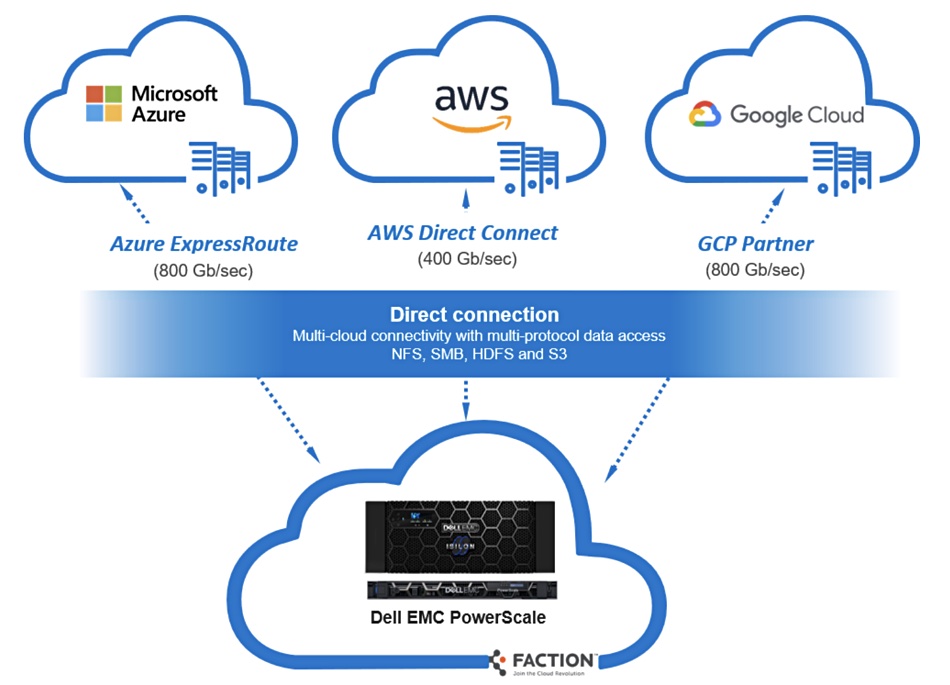Blocks and Files | Dell powers up hybrid cloud storage with Faction

Dell Technologies has expanded its partnership with Faction, the US multi-cloud managed services provider, to offer two new storage and data protection services.
Announcing the offerings, Joe CaraDonna, the CTO of Public Cloud and APEX Offerings at Dell Technologies, wrote in a blog post yesterday. “What we do – in collaboration with Faction – is provide a consistent way to manage storage and data protection for multiple clouds from a single place with one uniform experience”.
The two companies go to market under the catchy moniker ‘Dell Technologies Cloud Storage for Multi-Cloud – Powered by Faction” and teamed up in 2019 to offer array and filer storage for cloud apps and services in the AWS, Azure, Google and the Oracle clouds. They also offered Dell PowerProtect for MultiCloud. The services are fulfilled using Dell PowerScale, PowerStore, PowerMax, Unity XT arrays and PowerProtect systems installed in seven Faction data centres in the US.
Faction’s public cloud-adjacent data centre hubs provide a central source data repository and protection vault for customers who wrangle multiple public cloud and on-premises IT environments. This can be cost-efficient and convenient.
Or, as CaraDonna puts it: “The future of IT is hybrid – a world that balances the right public cloud services with the right on-premises infrastructure to provide the performance, scale, functionality and control required of modern applications and development paradigms.”
The new Dell services are:
- Superna Eyeglass DR Manager for PowerScale for Multi-cloud – replicates file data to PowerScale filers with 1- button failover, flexible SyncIQ scheduling, continuous readiness monitoring, DR testing, data loss exposure analysis and reporting, plus recovery to the Faction data centre or selected public cloud.
- PowerProtect Cyber Recovery – a PowerProtect repository for copied data with immutable storage, virtual air gaps, and malware-detecting analytics.
CaraDonna writes: “There is zero data gravity [with PowerScale for Multi-Cloud] as the data is not being transferred from one cloud environment to another, but simply accessed when needed. This approach to multi-cloud data access avoids the complexity, cost and time of managing multiple data copies.”

These services are similar in concept to the Pure Storage-Equinix partnership and also to NetApp’s Azure NetApp Files scheme, although that is Azure-specific.